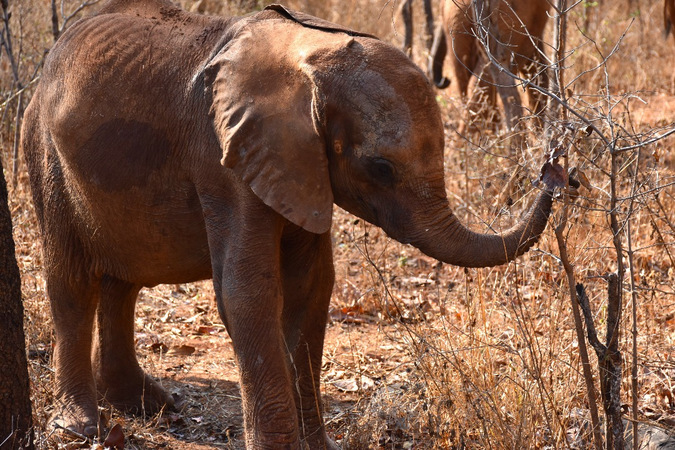
Ten years ago in South Luangwa National Park, Zambia, a one-and-a-half-year-old elephant is left alone and helpless when her mother is shot dead by poachers. The orphan calf is flown to Lusaka and ultimately moves into the Elephant Orphanage Project’s Lilayi Elephant Facility, situated on a 650 hectare game farm on the outskirts of town.
Healthy, but understandably traumatised, Chamilandu struggles to come to terms with the loss of both her mother and extended family. Suffering nightmares that have her screaming aloud in her sleep, it will take a great deal of love and attention from dedicated keepers to give her the reassurance she needs to adjust to her new life.
In the intervening years, Chamilandu grows into the matriarch of the orphan herd. Mothering and comforting the younger orphan calves as one tragedy or another brings them to the orphanage. Moving from the Lilayi Facility to Phoenix Camp in Kafue National Park (the release centre for older orphans) she eventually starts to demonstrate her desire to live independently in the bush; going on longer and longer forays alone and away from the release centre. Indeed, recently she has been seen interacting and mating with a wild bull in the park, a positive sign that she is ready to create new family/friendship bonds and is preparing herself for a life in the wild.
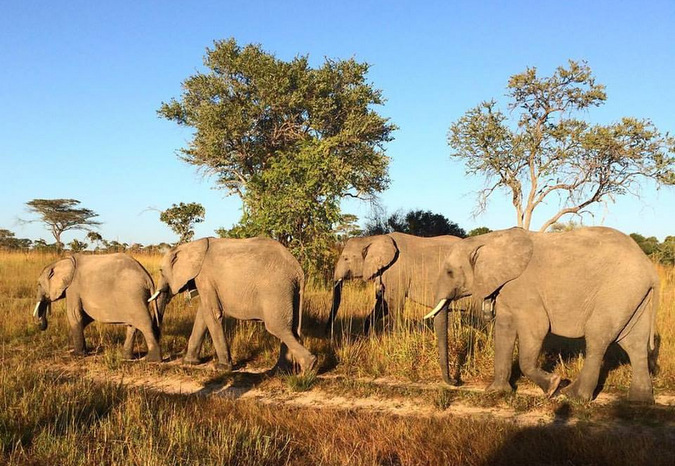
Elephants in Africa are under serious threat, primarily due to large scale poaching for ivory and also as a result of conflicts arising from elephant-human interactions. It is estimated that 25,000 elephants are being killed in Africa every year… this works out at approximately one elephant killed every 15 minutes!
The Elephant Orphanage Project provides a sanctuary for defenceless elephant calves who are the victims of poaching, human conflict or occasionally natural abandonment. Under the age of two, young elephants are extremely vulnerable and very dependent. Most will not survive without both their mother’s care and her nutrient-rich milk.
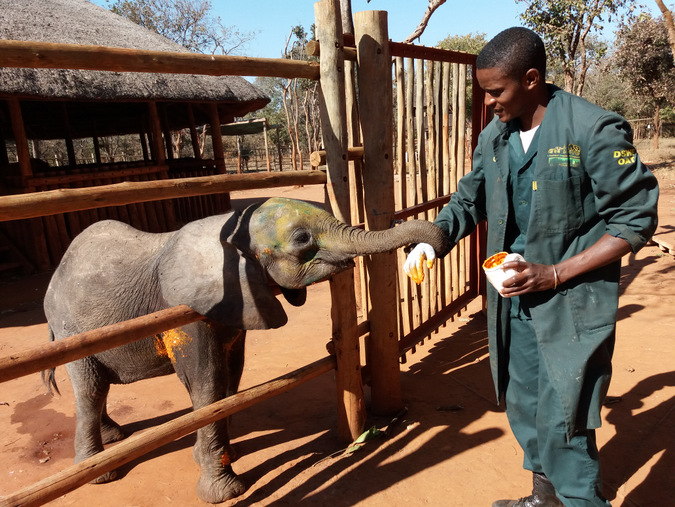
Lilayi Elephant Nursery
The first port of call for any orphan rescued within Zambia is the Lilayi Elephant Nursery, and it is here that these fragile babies are looked after twenty-four hours a day – a milk-dependent orphan requires its special formula every three hours!
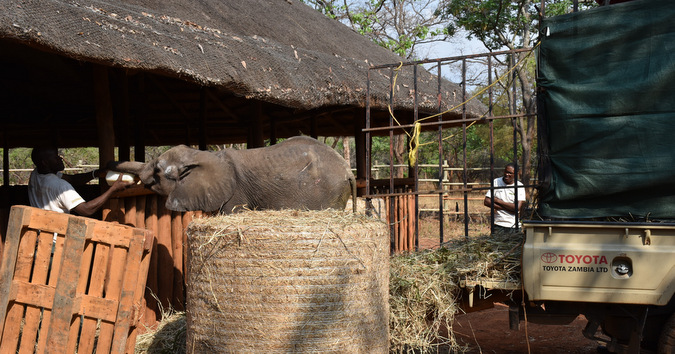
Trained keepers care for and watch over their charges constantly; taking them on daily ‘bush walks’, feeding them and staying close at hand to provide reassurance when the babies are in the stables at night. These keepers play a vital role in the emotional and social recovery of the young elephants, and become the ‘mother figure’ the babies desperately need.
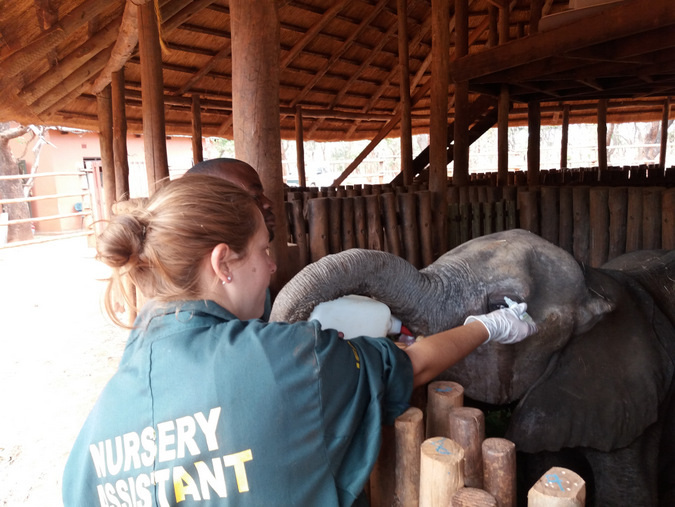
These youngsters have a difficult road ahead as they overcome the loss of their families, learn how to integrate and socialise with other elephants and ultimately grow into healthy adults who will one day walk free.
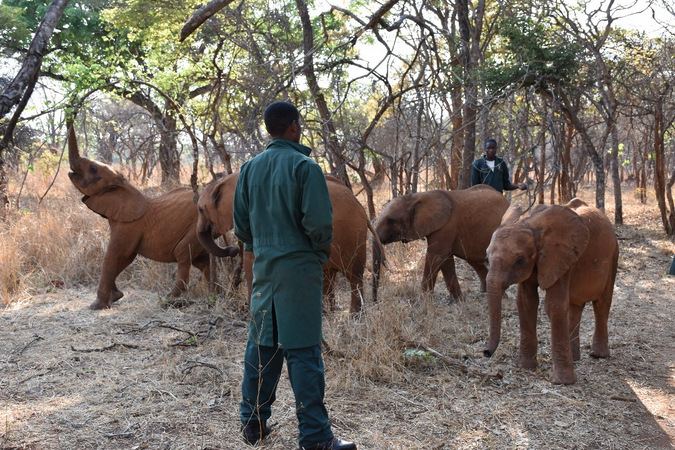
Kafue National Park release facility
As soon as the calves can be weaned from milk (approx three years of age) they are moved, with at least one social playmate, from Lusaka to the Release Facility in Kafue National Park, where they join other, older, orphaned elephants. Here they will learn to live more independently of human support and will spend much of their time wandering freely through the bush (‘walks’ scheduled from 6am – 12pm and 2pm – 6pm daily, with mud baths and playtime taking up the middle of the day).
The Kafue Release Facility is adjacent to the ancient Ngoma Teak Forest where there is a 1,000-strong local elephant population, maximising the chances of the orphans integrating with fellow elephants and gradually moving back into the wild once they are emotionally, physically and socially ready.
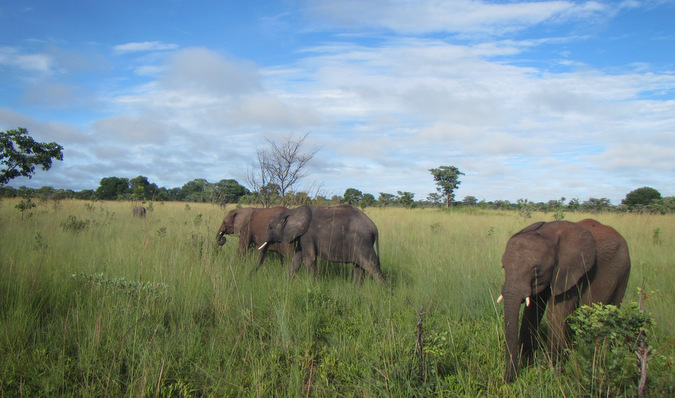
History
The Elephant Orphanage Project was established in 2007, with critical and on-going funding from the David Shepherd Wildlife Foundation, with the mission of rescuing, rehabilitating and releasing orphaned elephants back into the wild. The Elephant Orphanage Project works together with the Zambian Department of National Parks and Wildlife (DNPW) and is part of a conservation initiative developed and operated by Game Rangers International, a Zambian, not for profit NGO.
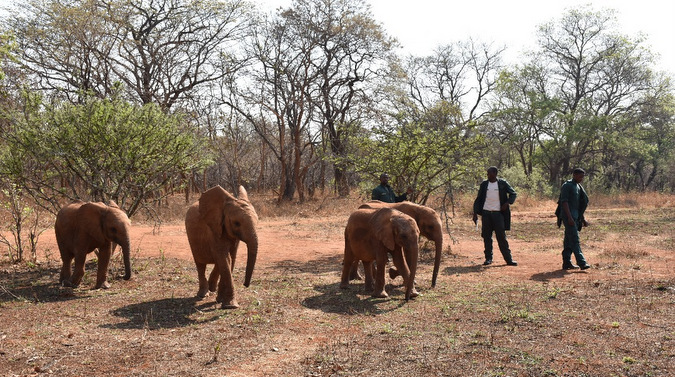
Visiting the nursery
You can visit the Lilayi Elephant Nursery, which is just a 35-minute drive from the centre of Lusaka any day of the year between 11h30 and 13h00. At 11h30 a staff member gives a short talk about the orphanage and you can visit the viewing deck which is an ideal vantage point for watching the elephants feed and play.
Note that given the ultimate goal of releasing the elephants back to the wild, visitors are not permitted to touch the elephants.
Cost: Adults K50, children ages 12-18 K20, children under 12 free. Every Monday entry is free.
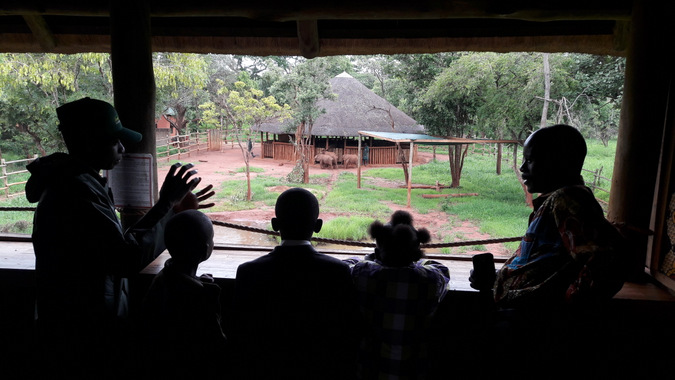
If you want to venture a little further off the beaten track, then you can visit the Elephant Orphanage’s Kafue Release Facility in the southern part of Kafue National Park, 12km along the South Nkala Loop from Ngoma (location of the National Parks and Wildlife Headquarters).
The closest places to stay when visiting the release centre is Konkamoya Lodge or HippoBay Campsite and Bushcamp.
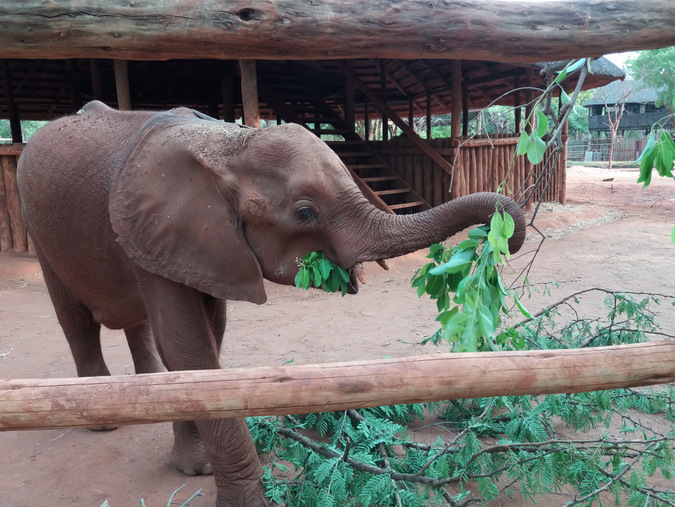
Costs and fundraising
It costs a lot to raise an orphan from rescue to release – a lot more that you might think! Rescues alone can vary widely in cost depending on the area the calf is found in just for starters.
In some instances special vehicles, boats or even planes need to be hired, add to that scout and tracker fees, then add vet fees which can include quarantine, sedatives, blood tests and various other medications – and don’t forget the cost of ‘manpower’.
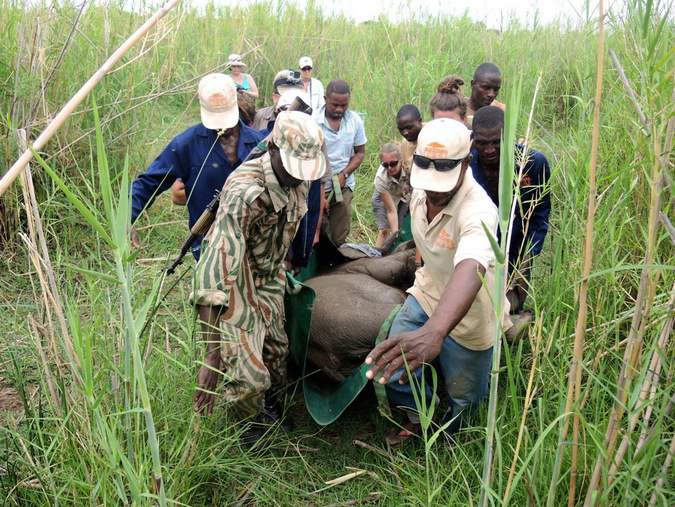
An ‘average’ rescue will be in the region of US$1,500. And once an orphan is rescued the costs continue to mount, with a staff of 27 at the Kafue Release Centre and another 17 at the Lilayi nursery wages are not an insignificant cost to be factored in. Feeding, veterinary, maintenance, communications… the list goes on.
With 17 orphans currently being cared for between the two facilities, each costing approximately $35,000 a year, the Elephant Orphanage Project has an operating budget in the region of $600,000 a year.
As with all conservation projects, funds are always in short supply, any donations can be directed to the Elephant Orphanage Project fundraising page.
You can also follow the project on their Facebook page.
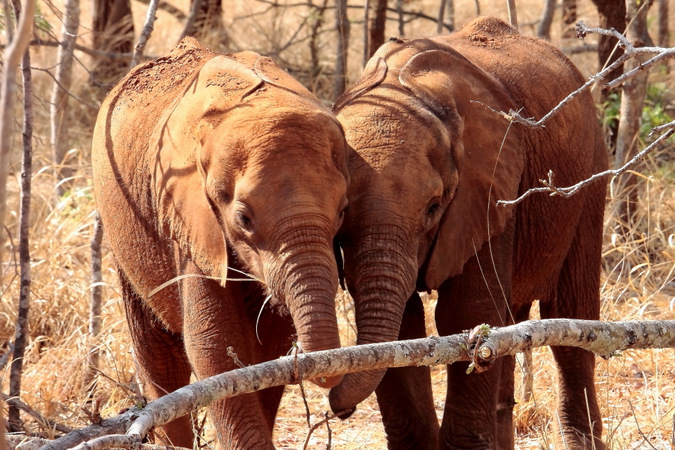
To comment on this story: Login (or sign up) to our app here - it's a troll-free safe place 🙂.![]()






